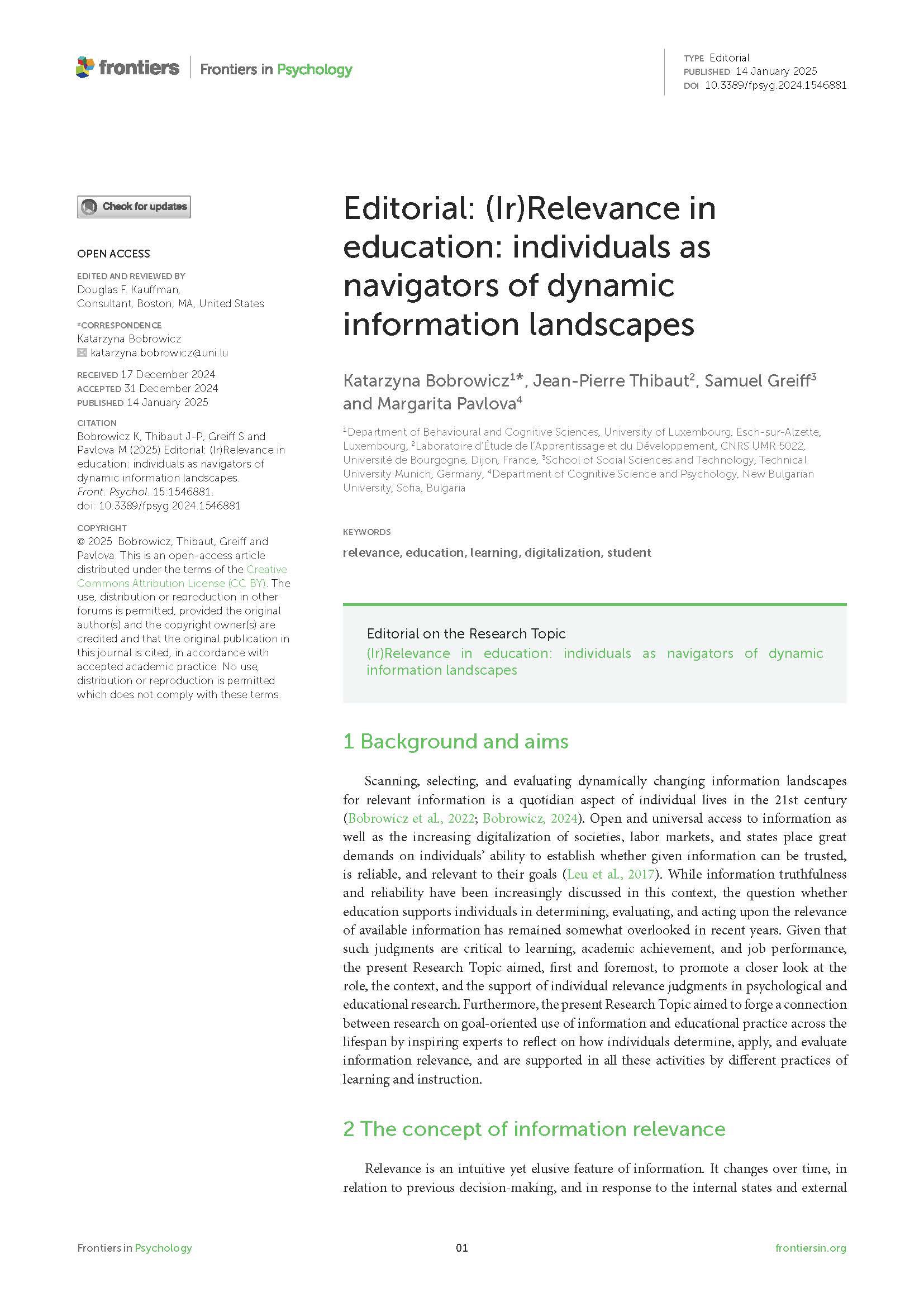Scanning, selecting, and evaluating dynamically changing information landscapes for relevant information is a quotidian aspect of individual lives in the 21st century (Bobrowicz et al., 2022; Bobrowicz, 2024). Open and universal access to information as well as the increasing digitalization of societies, labor markets, and states place great demands on individuals’ ability to establish whether given information can be trusted, is reliable, and relevant to their goals (Leu et al., 2017). While information truthfulness and reliability have been increasingly discussed in this context, the question whether education supports individuals in determining, evaluating, and acting upon the relevance of available information has remained somewhat overlooked in recent years. Given that such judgments are critical to learning, academic achievement, and job performance, the present Research Topic aimed, first and foremost, to promote a closer look at the role, the context, and the support of individual relevance judgments in psychological and educational research. Furthermore, the present Research Topic aimed to forge a connection between research on goal-oriented use of information and educational practice across the lifespan by inspiring experts to reflect on how individuals determine, apply, and evaluate information relevance, and are supported in all these activities by different practices of learning and instruction.
Editorial: (Ir)Relevance in education: Individuals as navigators of dynamic information landscapes
